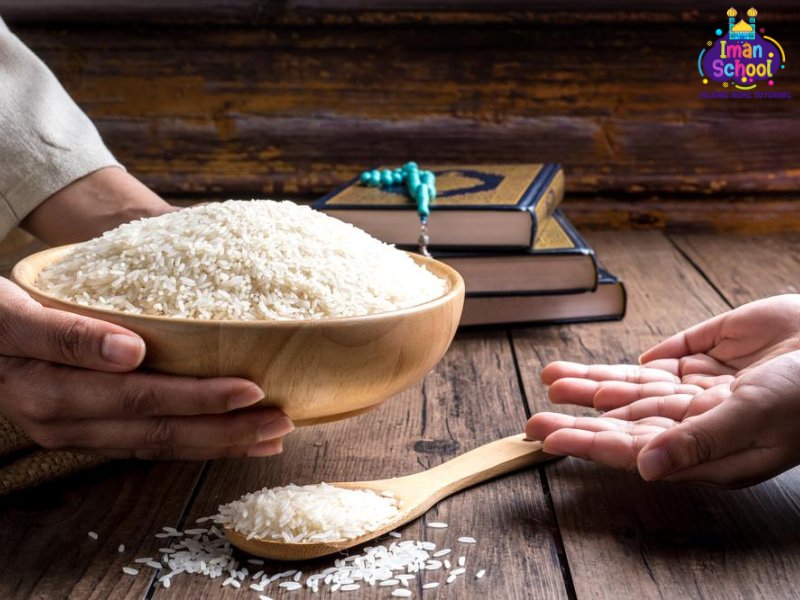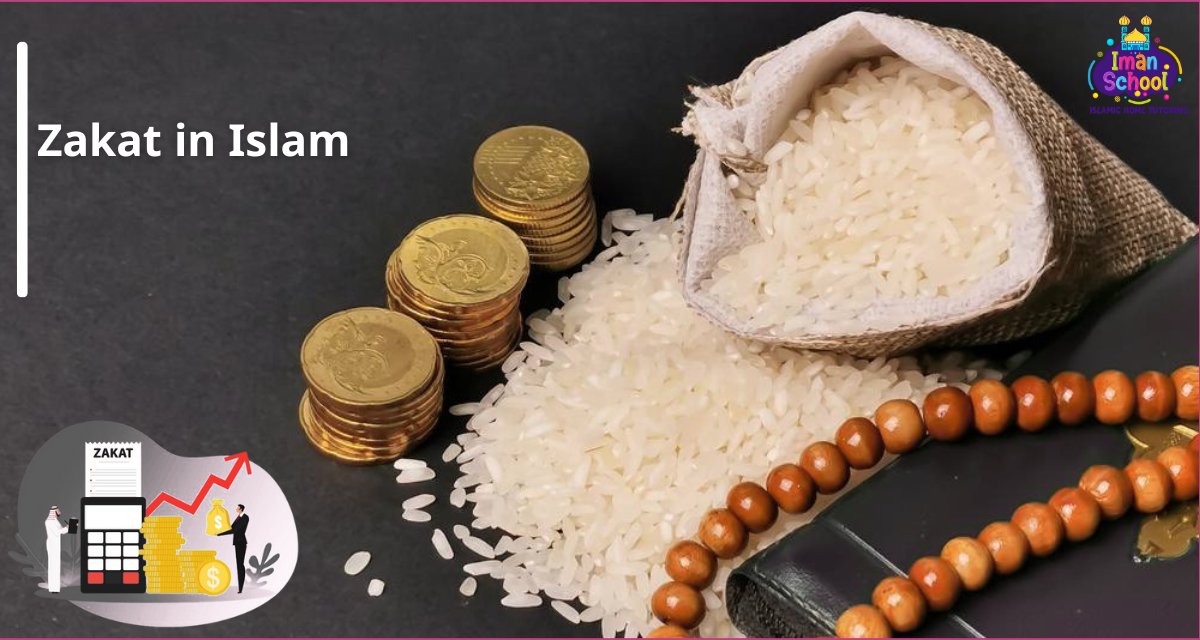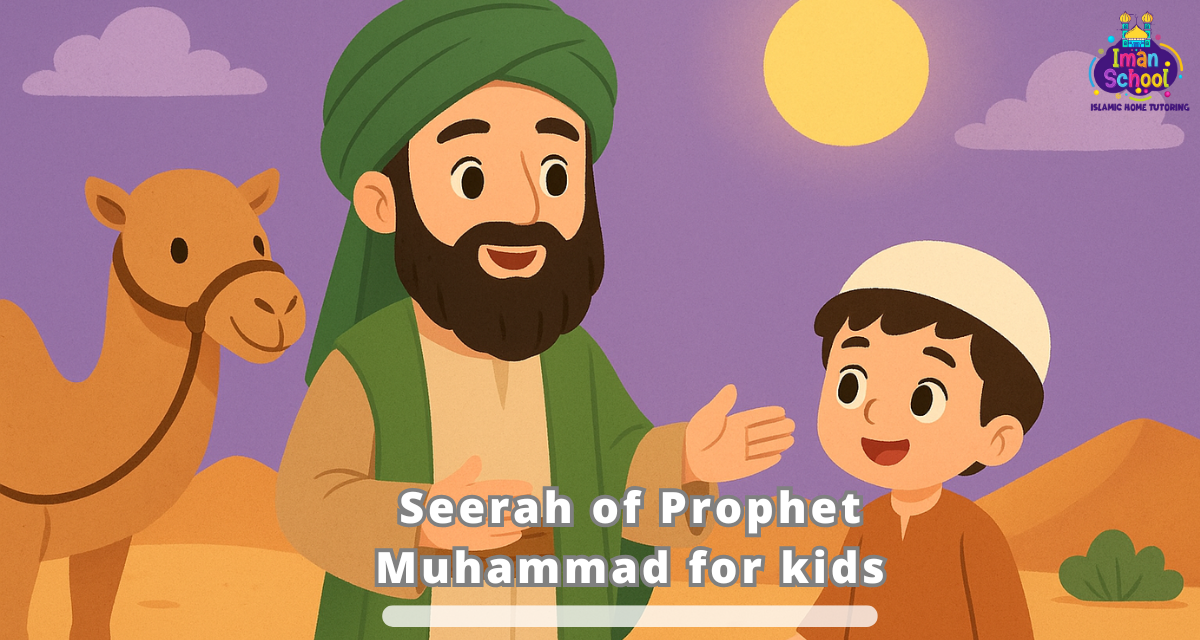Zakat in Islam is not just a financial obligation. It is a core pillar that shapes the ethical, social, and economic life of every Muslim. If you ask any practicing Muslim about the basics of faith, Zakat will always come up.
-
But why does it hold such weight in the religion?
-
What difference does it make to your life, your wealth, and your community?
-
How can you calculate it correctly and fulfill your duty according to the Quran?
This article gives you a clear, actionable guide to understanding Zakat in Islam. You will learn how to calculate it, know the types, understand the rules, and see its effects on individuals and society.
You will also see the spiritual dimension: Zakat as a purifier for your wealth and soul.
What Is Zakat and Why Is It Important in Islam?
Zakat in Islam is a mandatory act of worship and one of the five pillars of the faith. It serves as a divine command for Muslims to purify their wealth and contribute to social justice. The concept of Zakat literally means "to purify" and "to grow," reflecting its spiritual and societal dimensions.
The Quran repeatedly emphasizes Zakat as a fundamental obligation. For instance, many Quranic verses about Zakat highlight its role alongside prayer, underscoring its importance in a believer’s life. Zakat in the Quran is mentioned over thirty times, illustrating how integral it is to Islamic practice.
Beyond being a religious duty, Zakat serves to cleanse the soul and the wealth of the giver. It removes impurities such as greed and selfishness, and promotes generosity. This purification is why Zakat and spiritual purification are closely linked concepts in Islam.
Moreover, Zakat in Islam plays a critical role in reducing economic inequality by redistributing wealth to those in need. It strengthens the social fabric by ensuring that the poor and marginalized members of the Muslim community receive support, thus fostering unity and compassion.

How Can You Calculate Your Zakat Correctly?
Calculating Zakat in Islam accurately is essential to fulfill this religious obligation correctly. Understanding Zakat calculation involves knowing which types of wealth are subject to Zakat, determining the nisab threshold, and applying the prescribed percentage.
Zakat rules and guidelines specify that Zakat is payable on various assets, including cash savings, gold, silver, business inventory, agricultural produce, and livestock. The first step is to tally all your zakatable assets and confirm that their combined value meets or exceeds the nisab—the minimum amount of wealth that necessitates paying Zakat.
To determine nisab, many use the value of 85 grams of gold or 595 grams of silver, based on current market prices. The next step is to ensure you have held the wealth for a full lunar year, known as hawl. Only after fulfilling this condition does the Zakat calculation apply.
The standard Zakat rate is 2.5% of qualifying wealth. For example, if your total zakatable assets equal $10,000 and have been held for one lunar year above nisab, your due Zakat is $250.
For those new to Zakat calculation, online Zakat courses offer step-by-step guidance. These courses simplify complex cases, like valuing investments or business goods, and teach you how to calculate Zakat precisely according to Islamic jurisprudence.
What Are the Different Types of Zakat in Islam?
Zakat in Islam encompasses several types, each with its own rules and conditions. Understanding the types of Zakat is crucial for accurate compliance and spiritual fulfillment.
1- Zakat al-Mal (Wealth Zakat)
This is the most common form, applying to cash, gold, silver, business merchandise, and other accumulated wealth. Zakat calculation here involves evaluating the total eligible assets annually.
2- Zakat al-Fitr
A specific type of Zakat obligatory on every Muslim before Eid prayer. It is a fixed amount of staple food or its monetary equivalent, intended to purify the fast and assist the poor in celebrating the festival.
3- Agricultural Zakat
Levied on crops with a rate depending on the irrigation method—typically 5% if rain-fed, and 10% if irrigated by other means.
4- Livestock Zakat
Applied to camels, cattle, and sheep when owned beyond certain quantities, with detailed Zakat rules and guidelines for each category.
Each type serves to purify specific forms of wealth and supports different segments of the Muslim community. Knowing these types ensures correct Zakat payment and maximizes its benefits.
Learn more about: Islamic Education
How Does Zakat Purify Wealth and Soul?
1- Purification of Wealth: Removing Spiritual Impurities
Zakat in Islam cleanses wealth from spiritual impurities such as greed, selfishness, and hoarding. When a Muslim pays Zakat, they ensure their wealth does not become a source of pride or attachment but remains a blessing and a means of good in the community. This purification allows wealth to circulate rather than stagnate, promoting social welfare and economic balance.
For example, a person who hoards wealth without giving may face spiritual consequences, while paying Zakat regularly purifies their assets and increases the blessing in what remains.
2- Spiritual Growth Through Generosity
Paying Zakat nurtures generosity and detachment from material possessions. It trains believers to recognize that wealth is a trust from Allah, not absolute ownership. By regularly giving a portion of their assets, Muslims develop humility, gratitude, and a stronger connection to their Creator.
This spiritual growth helps transform the individual’s character, fostering patience, selflessness, and contentment.
3- Strengthening Social Responsibility
Zakat encourages Muslims to take responsibility for their community. It fosters empathy by making wealth a shared resource rather than a private commodity. This sense of social duty reduces economic disparities and creates bonds of solidarity.
For instance, when a wealthy person gives Zakat, they help uplift the poor, reinforcing the social fabric and encouraging mutual care.
4- Inner Peace and Satisfaction
Fulfilling the obligation of Zakat brings inner tranquility and satisfaction. Knowing that one’s wealth is purified and being used to assist those in need offers spiritual comfort and a sense of fulfillment. This peace strengthens faith and encourages continued obedience to Allah’s commands.
Many believers report feeling lighter and more grateful after giving Zakat, as it aligns their actions with divine guidance.
What Quranic Verses Emphasize the Importance of Zakat?
1- Zakat Paired with Prayer: A Pillar of Faith
The Quran consistently pairs the command to give Zakat with the establishment of prayer, emphasizing their equal importance. Verses like “And establish prayer and give Zakat...” (Surah Al-Baqarah 2:43) show that Zakat is fundamental to a believer’s relationship with Allah.
This pairing underlines that both spiritual devotion and social responsibility are essential parts of Islamic faith.
2- Identifying the Beneficiaries
The Quran specifies who should receive Zakat: the poor, the needy, those employed to collect it, those whose hearts are to be reconciled, freeing captives, those in debt, for the cause of Allah, and the wayfarer (Surah At-Tawbah 9:60). This clear guidance ensures fairness and prevents misuse, directing resources to those who genuinely need help.
3- Divine Promise of Reward
Allah promises great reward for those who pay Zakat sincerely. Verses like “Indeed, those who believe and do righteous deeds and establish prayer and give Zakat will have their reward with their Lord...” (Surah Al-Baqarah 2:277) assure believers that their efforts are recognized and multiplied.
This promise motivates Muslims to fulfill their obligations faithfully.
4- Zakat as a Means of Mercy and Social Harmony
Zakat fosters mercy among community members and helps build social harmony by bridging economic gaps. It is a practical manifestation of compassion and justice commanded by the Quran.
By giving Zakat, believers promote unity and reduce tensions caused by poverty and inequality.

Discover: Information About the Holy Quran
What Is the Difference Between Zakat and Sadaqah?
1- Obligation vs. Voluntariness
Zakat is a mandatory obligation prescribed by Allah, with fixed rules and penalties for neglect. In contrast, Sadaqah is voluntary charity, encouraged to be given generously but without obligation.
This distinction clarifies priorities in worship and social ethics.
2- Fixed Amount vs. Flexible Giving
Zakat requires paying a fixed portion—usually 2.5%—of eligible wealth once annually. Sadaqah can be any amount given at any time according to one’s means and willingness.
3- Designated Recipients vs. Open Beneficiaries
Zakat has specified recipients defined in the Quran, ensuring systematic social support. Sadaqah can be given to anyone or any cause, including non-Muslims, and covers a wider range of charitable acts.
4- Legal and Spiritual Status
Zakat is one of the five pillars of Islam, carrying legal and spiritual significance. Sadaqah, while highly meritorious, is supplementary and a means to enhance generosity and kindness beyond obligatory acts.
Also read about: Memorization of the Holy Quran for Non-Arabic Speakers
How Does Zakat Benefit the Muslim Community and Society?
1- Reducing Poverty and Hunger
Zakat in Islam acts as a direct financial support system for the poor and needy, helping to alleviate poverty and hunger. By redistributing wealth, Zakat ensures that basic needs like food, shelter, and healthcare are more accessible to vulnerable groups.
2- Promoting Economic Justice and Balance
Zakat discourages wealth hoarding and concentration by requiring wealthy Muslims to share a portion of their wealth. This circulation promotes economic balance and fairness, preventing large disparities that can cause social unrest.
3- Strengthening Social Cohesion and Solidarity
The act of giving Zakat fosters empathy and responsibility within the Muslim community. It builds trust and mutual support, reinforcing social bonds between different economic classes.
4- Funding Community Development
Historically, Zakat has funded public goods such as education, healthcare, and infrastructure projects. It empowers communities to invest in long-term growth and welfare.
Find out more about our online courses
FAQ About Zakat in Islam
When should I pay Zakat?
Zakat becomes due once your wealth exceeds the nisab and has been held for a full lunar year, though many choose to pay during Ramadan.
Can I pay Zakat online?
Yes. Online Zakat courses and platforms offer convenient ways to calculate and pay Zakat securely.
What assets are subject to Zakat?
Cash, gold, silver, business inventory, agricultural produce, and livestock are commonly subject to Zakat. Personal belongings and primary residences are exempt.
What if I miss paying Zakat?
You should pay any missed Zakat as soon as possible, as it remains a debt owed to Allah.
Can I give Zakat to my family?
You cannot give Zakat to immediate dependents but can give it to extended family members if they qualify.
Zakat in Islam Made Easy – Learn How with Iman School
Zakat in Islam is more than an obligation—it is a transformative act that purifies your wealth, elevates your spirit, and strengthens the Muslim community. Accurate calculation and timely payment ensure that your Zakat fulfills its divine purpose, helping those in need and fostering social justice.
At Iman School, we offer comprehensive online Zakat courses designed to guide you step-by-step through the Zakat calculation process. Our expert instructors provide personalized support to ensure you understand the Zakat rules and guidelines fully, empowering you to fulfill this pillar of Islam with confidence and ease.




